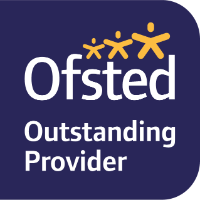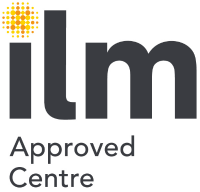
Our Prospectus

Business and Management
Courses
Choosing what to study can be challenging. Speak to one of our advisors to find out what your options are.
Are you looking to develop your skills in Human Resources and People Management? The CIPD Level 5 Associate Diploma in People Management is the perfect qualification for existing HR professionals keen to develop their skills and drive change within their organsations, helping you focus on what matters most to you.
West Suffolk College is offering this qualification via means of bi-monthly online taught lessons covering the Units within the qualification and tutor support.
The qualification is made up of three core units, 3 specialist units and the choice of one optional units and they are as follows:
Core units:
Specialist units:
Employment relationship management - This unit examines the key approaches, practices and tools to manage and enhance the employee relationship to create better working lives and the significant impact this can have on organisational performance
Talent management and workforce planning - This unit focuses on the impact of effective workforce planning in considering the development of diverse talent pools and how to contract and onboard the workforce. It also includes analysis of the potential cost to the organisation if this is poorly managed and the tools and interventions required to mitigate this risk
Reward for performance and contribution - This unit focuses on how internal and external business factors influence reward strategies and policies, the financial drivers of the organisation and the impact of reward costs. It considers the importance of the role of people practice in supporting managers to make robust and professional reward judgements and the impact of rewarding performance
Optional units:
** NEW BOOKING PROCEEDURE VIA EVENTBRITE - PLEASE CLICK FOR FURTHER INFORMATION **
Building on the practical knowledge and understanding gained at the CIPS Level 4 Diploma in Procurement and Supply, your learning will focus on:
This qualification will help you to grow in confidence, improve organisational procurement and fulfill objectives.
You are required to complete 5 core modules, then choose your own learning pathway by selecting 3 elective modules.
Five Core Modules
Three Elective modules:
This occupation is found in private, public and third sector national and multinational organisations and employers. It is found in every sector across the country including, for example; the health sector, finance sector, engineering and manufacturing sectors, business and professional services, education sector, retail sector, leisure sector, technology sector and construction.
There has been a growing demand for the professionalisation of coaching to include one-to-one coaching, team coaching, leadership coaching and for coaching skills to be embedded within culture and governance infrastructures to support future ways of working.
The broad purpose of the occupation is to work with a wide range of individuals and teams across organisations, to empower and engage with them to enhance their professional performance. Coaching is a way of leading in a non-directive manner, helping people to learn through deep listening and reflective, open questions rather than instructing, giving advice or making suggestions.
Coaching is a way of treating people, a way of thinking and a way of being which is seen as vital to supporting individuals and organisations in increasingly volatile and ever-changing environments. The underlying and ever present purpose of coaching is building the self-belief of others, regardless of the context, to be curious and self-aware, better equipping them to collaborate, innovate, deal with the increasing pace of change and get the best from increasingly diverse environments. Effective coaching is future focussed, releases potential, and enables transition, transformation and change for business improvement. Understanding self, commitment to self-development, managing the contract, building the relationship, enabling insight and learning, outcome and action orientation, use of models and techniques and evaluation are key overarching areas which feature within this occupational area.
The ILM Level 5 qualifications in management have been specially designed to give practising and aspiring middle/senior managers a comprehensive understanding of the complex nature of operational and strategic management.
There are 3 graduated qualifications at this level, the Award, the Certificate and the Diploma.
The Diploma in Leadership and Management is the full qualification. It is a longer term programme aimed at extending management skills and knowledge across a full range of middle management functions.
Employers have identified many benefits arising as a result of their managers undertaking the ILM management qualifications and these include:
This course has been designed to give delegates the option to attend West Suffolk College for classroom style delivery and / or remote delivery sessions with a supporting workbook. Delegates will have a choice of what sessions they wish to attend giving more flexibility to the delivery model and ability to engage in a mix of classroom and remote learning.
The course fee includes all tuition fees, course materials and the costs of registration and certification with the Institute of Leadership and Management.
Please telephone 01284 716246 or email training@easterneducationgroup.ac.uk to enquire about full programme and dates

The ILM Level 5 qualifications in management have been specially designed to give practising and aspiring middle/senior managers a comprehensive understanding of the complex nature of operational and strategic management.
There are 3 graduated qualifications at this level, the Award, the Certificate and the Diploma.
The Diploma in Leadership and Management is the full qualification. It is a longer term programme aimed at extending management skills and knowledge across a full range of middle management functions.
Employers have identified many benefits arising as a result of their managers undertaking the ILM management qualifications and these include:
This course has been designed to give delegates the option to attend West Suffolk College for classroom style delivery and / or remote delivery sessions with a supporting workbook. Delegates will have a choice of what sessions they wish to attend giving more flexibility to the delivery model and ability to engage in a mix of classroom and remote learning.
The course fee includes all tuition fees, course materials and the costs of registration and certification with the Institute of Leadership and Management.
Please telephone 01284 716246 or email training@easterneducationgroup.ac.uk to enquire about full programme and dates.

Page 1 of 3
Follow Us
Stay up-to-date on the latest news & events